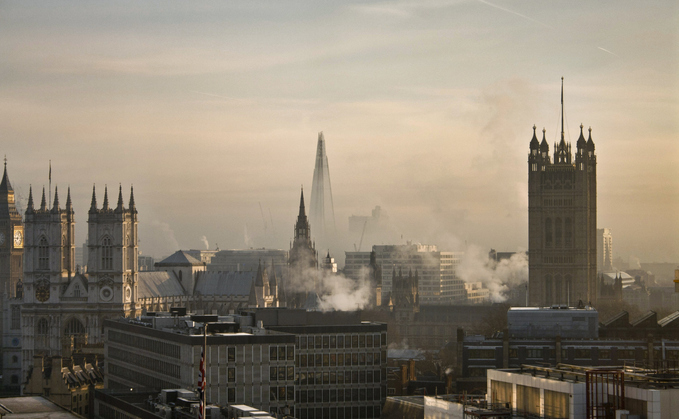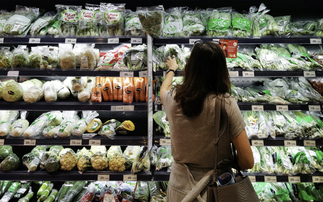
Credit: iStock
'Chain-link' between city, regional, and corporate net zero targets must focus on building integrity in support of national climate goals
A so-called "commitment gap" in city, state, and regional government net zero targets is holding back the transition to a net zero emission economy and risks undermining national climate targets set under the Paris Agreement.
That is the worrying conclusion of the latest annual stocktake by the Net Zero Tracker initiative, which reveals only a modest increase in the number of net zero targets set by subnational governments over the past year.
As such, the authors of the 2024 Net Zero Stocktake urge cities, states, and regions to establish and enforce policies and regulations in line with clear and ambitious net zero plans.
The annual study of assessment of global climate pledges and their integrity by the Net Zero Tracker initiative - which is backed by the Energy & Climate Intelligence Unit (ECIU), Data-Driven EnviroLab (UNC), NewClimate Institute, and Oxford Net Zero - found that 26 per cent of states and regions in its database have net zero targets in place, collectively covering a population of 2.2 billion - a sharp increase on the 497 million people covered by subnational net zero targets in December 2020.
The report also revealed that 23 per cent of major cities representing a combined population of 793 million have set net zero targets, up from 640 million people covered by city-based climate goals in December 2020.
However, most city-level net zero targets are in 'high income' countries, with just 11 per cent of cities in 'lower income' countries having net zero targets in place.
The adoption of subnational targets falls well short of the level of national net zero goals now in place. The latest edition of the report confirmed national net zero targets and those of self-governing territories cover at least 87 per cent of global emissions, 93 per cent of global GDP, and 88 per cent of the global population.
John Lang, who leads the Net Zero Tracker initiative at the ECIU, said the failure of many regional and city governments to emulate national governments and develop clear net zero targets and strategies risked hampering decarbonisation efforts.
"National net zero targets are our bridge to the clean-energy future," he said. "To maintain integrity, the chain-links inside that superstructure - the targets and plans of cities, regions and companies - must themselves have integrity. Some links are strong, others are weak, and too many are missing altogether."
However, this year's report highlighted some encouraging progress in the targets set by subnational governments from the 14 "major-emitting nations" collectively responsible for more than three-quarters of global emissions: Australia, Brazil, Canada, China, France, Germany, India, Indonesia, Italy, Japan, Mexico, South Africa, the UK, and the US.
In India, for example, 14 of the 20 regions with a net zero target aim to achieve net zero earlier than the national government's 2070 target date, while five of the 18 US states with similar targets are targeting net zero before the federal government's 2050 goal. Moreover in Mexico, which does not have a legal national net zero target, 11 out of 32 states have long-term climate targets, three of which are net zero targets.
"The powers of subnational governments, to establish and enforce regulations, in areas ranging from urban planning, to transport, to waste and health, are critical to smoothing the path to net zero," said Sybrig Smit, NewClimate Institute Analyst and the report lead. "If subnational powers are coupled with clear net zero commitments, it sends a clear signal to markets and raises the ceiling of ambition at the national - and in turn the global level."
The report also raises integrity of many net zero targets set by regional governments, city authorities, and corporates. The Stocktake claimed accepted quality criteria for net zero pledges were only met by up to five, four, and three per cent of companies, cities, and regions, respectively. However, the absolute number of companies that met all criteria increased by 62 per cent compared with 18 months ago.
The Stocktake also found that more than 40 per cent of major non-state and subnational governments and companies analysed are operating without any kind of emissions reduction target, totalling some 1,700 of the near 4,000 institutions and organisations studied.
And it claimed almost half the world's largest 100 private companies have opted out of setting climate targets, highlighting how listed companies are proving much more adept at developing ambitious net zero strategies.
However, Frederic Hans, NewClimate Institute analyst, said there was a growing band of leading companies and governments that are showcasing how effective net zero targets can deliver results. "Companies like Volvo Group and Google, and countries like Costa Rica are leading the way with innovative net zero strategies," he said. "Their experiences and the lessons they've learned to further improve their strategies set a powerful example for others to follow.
"Peer learning will be crucial in shaping effective net zero strategies that align with the latest scientific insights and developments. This approach is essential as we navigate this pivotal decade in the fight against climate change."
Camilla Hyslop, Net Zero Tracker data lead, warned the large number of entities that continue to fail to sign up to the globally agreed mission to tackle climate change are leaving their economies and their global supply chains "highly vulnerable to transition risk" as other organisations strive to cut emissions and accelerate clean tech deployment. She also urged national governments to ramp up efforts to tackle these risks.
"By incentivising and supporting companies and sub-national governments to set rigorous net zero targets and plans, countries can boost the credibility of national climate goals," she said.
Keep up to date with all the latest green business news by signing up to the free Daily and Weekly BusinessGreen Newsletters.









